Photographs: Uday Kuckian/Rediff.com
As part of the textile day at Lakme Fashion Week, three young designers went back to their roots and created these dazzling pieces. Read on.
Today, Lakme Fashion Week celebrates traditional Indian weaves and textiles. In the first show of the day, three young designers -- Ashdeen Z Lilaowala, Gaurav Jai Gupta and Swati Kalsi -- explored three distinct traditions.
First, Lilaowala who belongs to the small but influential Parsi community showed his line that was inspired by Gara embroidery techniques, using it on contemporary outfits including cocktail dreses and evening gowns among others.
MUST SEE: Lakme Fashion Week Complete Coverage
PICS: Dazzling Parsi gara and Bihar's stitch art
Photographs: Uday Kuckian/Rediff.com
Through the motifs that appear on his outfits, Lilaowala evokes the designs of the traditional Gara designs worn by Parsi women.
PICS: Dazzling Parsi gara and Bihar's stitch art
Photographs: Uday Kuckian/Rediff.com
It is thus that you see the motifs of entwined cranes, chrysanthemums, butterflies, gracing figures and pagodas on his designs.
PICS: Dazzling Parsi gara and Bihar's stitch art
Photographs: Uday Kuckian/Rediff.com
Diva Dhawan walks the ramp in one of Ashdeen Z Lilaowala's outfits.
PICS: Dazzling Parsi gara and Bihar's stitch art
Photographs: Uday Kuckian/Rediff.com
Finally, Lakshmi Kritika Madan takes to the ramp in a sari, draped in Gujarati/Parsi fashion with a floral Gara.
PICS: Dazzling Parsi gara and Bihar's stitch art
Photographs: Uday Kuckian/Rediff.com
Gaural Jai Gupta is driven by the need to balance out the unstoppable booming of the powerloom sector with reviving, sustaining and valuing the tradition knowledge of hand crafting clothes. By his own account, Gupta drew his visual references from the works of the painter Paul Klee and old furniture, architecture, personal photographs and artefacts.
It is thus that we first have this outfit featuring Orissa Ikat cotton shirt with stainless steel and silk flared jacket and a pair of hand woven cotton and silk chanderi trousers.
PICS: Dazzling Parsi gara and Bihar's stitch art
Photographs: Uday Kuckian/Rediff.com
Diva Dhawan walks the ramp in a hand woven striped cotton layered dress with a cotton scarf and a multicoloured top.
PICS: Dazzling Parsi gara and Bihar's stitch art
Photographs: Uday Kuckian/Rediff.com
Next up we have this stunning handwoven engineer crushed silk sari.
PICS: Dazzling Parsi gara and Bihar's stitch art
Photographs: Uday Kuckian/Rediff.com
Another handwoven piece, this time a cotton tunic with a jacket appears on the ramp.
PICS: Dazzling Parsi gara and Bihar's stitch art
Photographs: Uday Kuckian/Rediff.com
And finally we have this multicolour navi-striped topped with handwoven pleated cotton silk chanderi skirt
PICS: Dazzling Parsi gara and Bihar's stitch art
Photographs: Uday Kuckian/Rediff.com
The final designer for the show was the young Swati Kalsi who explored the Bihari embroidery tradition of Sujani on the ramp.
PICS: Dazzling Parsi gara and Bihar's stitch art
Photographs: Uday Kuckian/Rediff.com
In blue, grey and ivory, Kalsi's designs are made in Indian tussar silk.
PICS: Dazzling Parsi gara and Bihar's stitch art
Photographs: Uday Kuckian/Rediff.com
Kanishta Dhankar walks the ramp in an easy flowing Swati Kalsi outfit
PICS: Dazzling Parsi gara and Bihar's stitch art
Photographs: Uday Kuckian/Rediff.com
Sujani is in fact a special quilt that is made by recycling number of worn out saris and dhotis.
PICS: Dazzling Parsi gara and Bihar's stitch art
Photographs: Uday Kuckian/Rediff.com
Over the years, Kalsi has worked with traditiol artisans and worked towards highlighting a design vocabulary that highlights rather than hides the quirks and anomalies that arise from the process of creation.



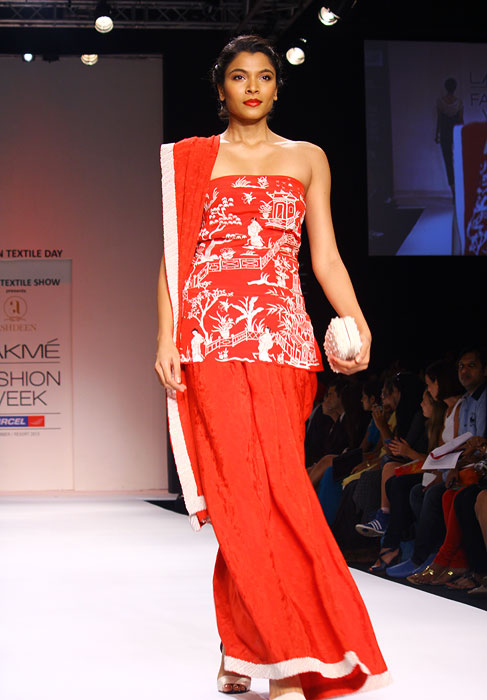
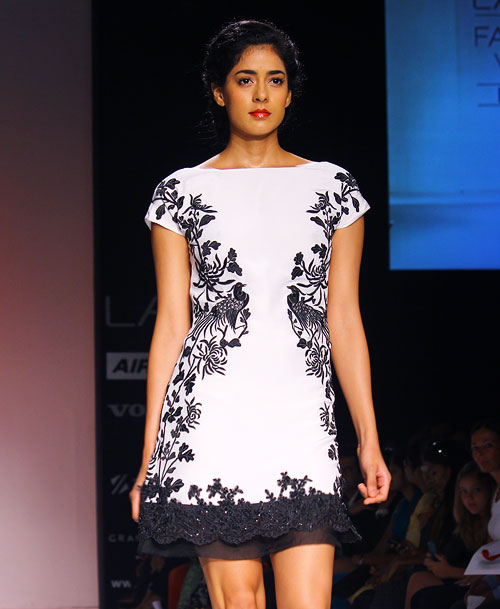

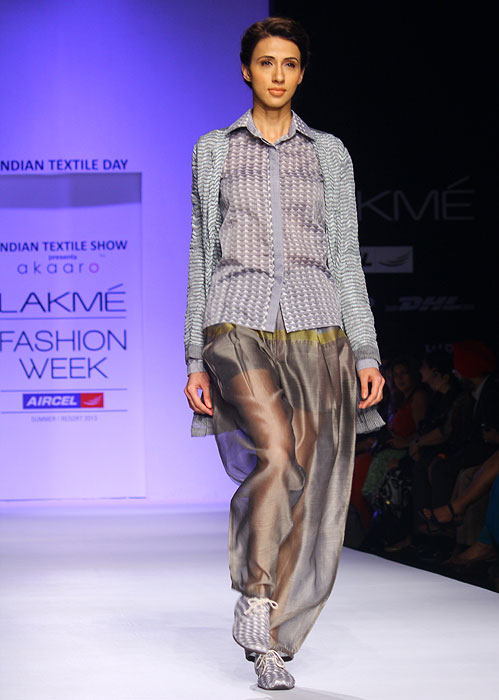


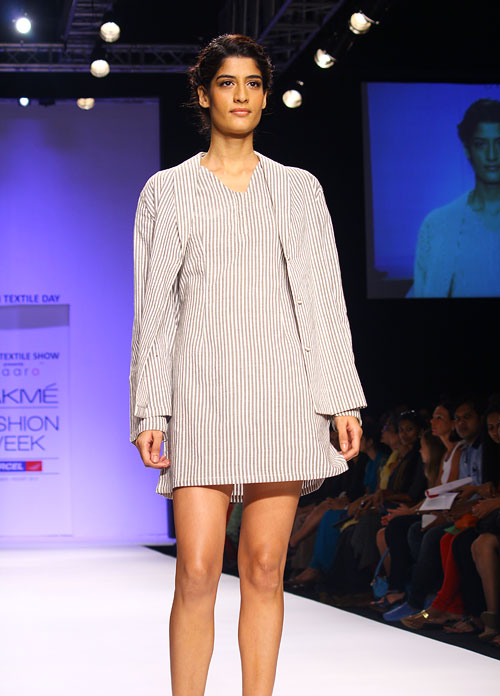
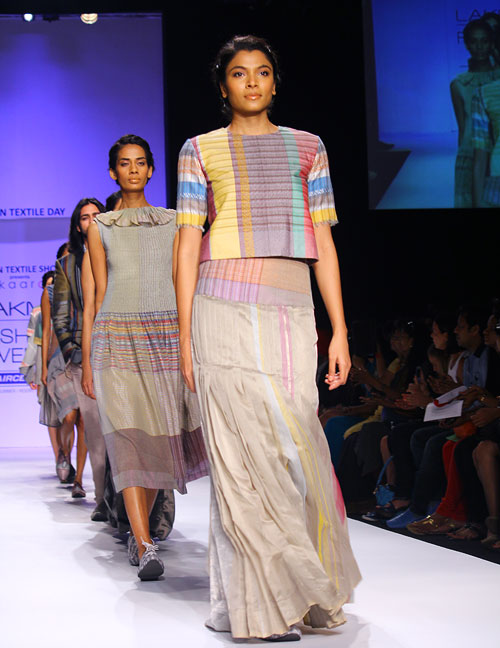

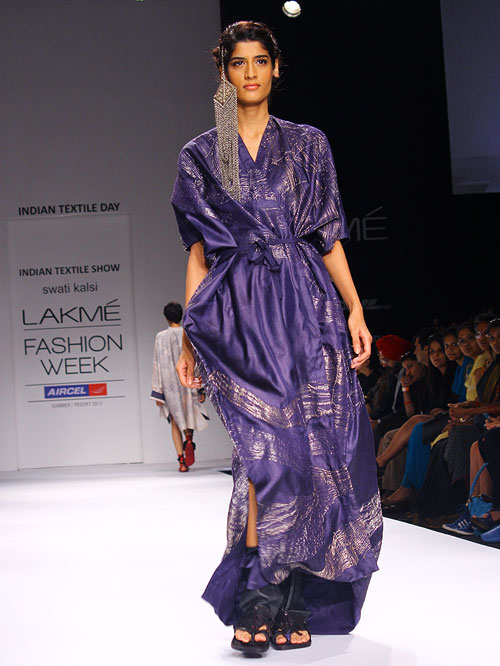
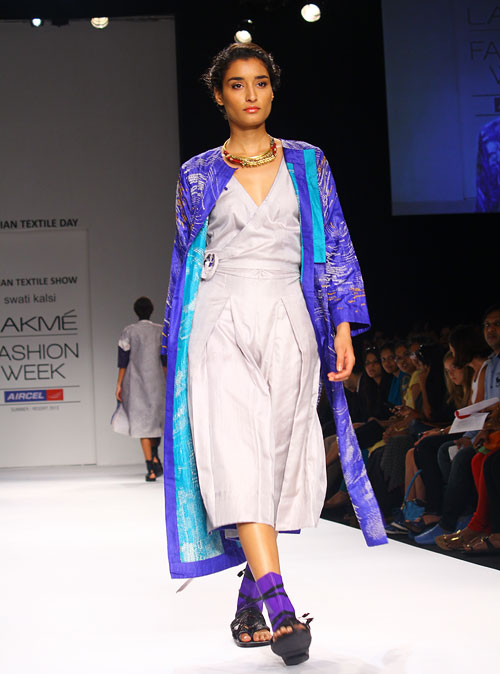
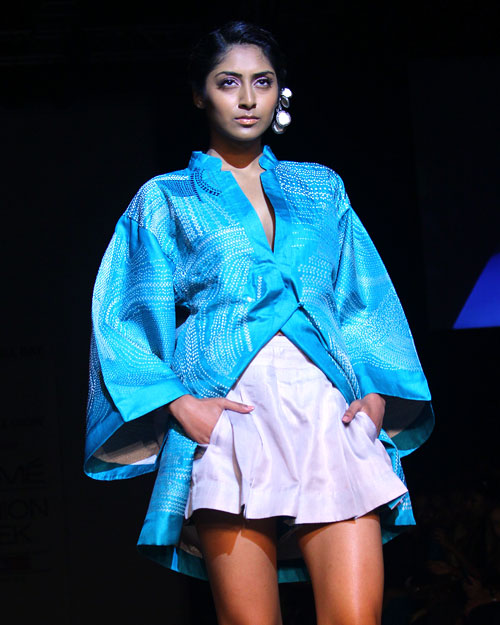
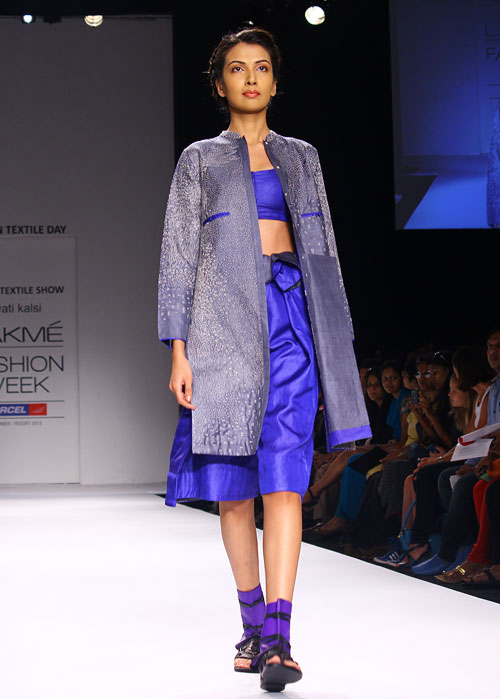
Comment
article